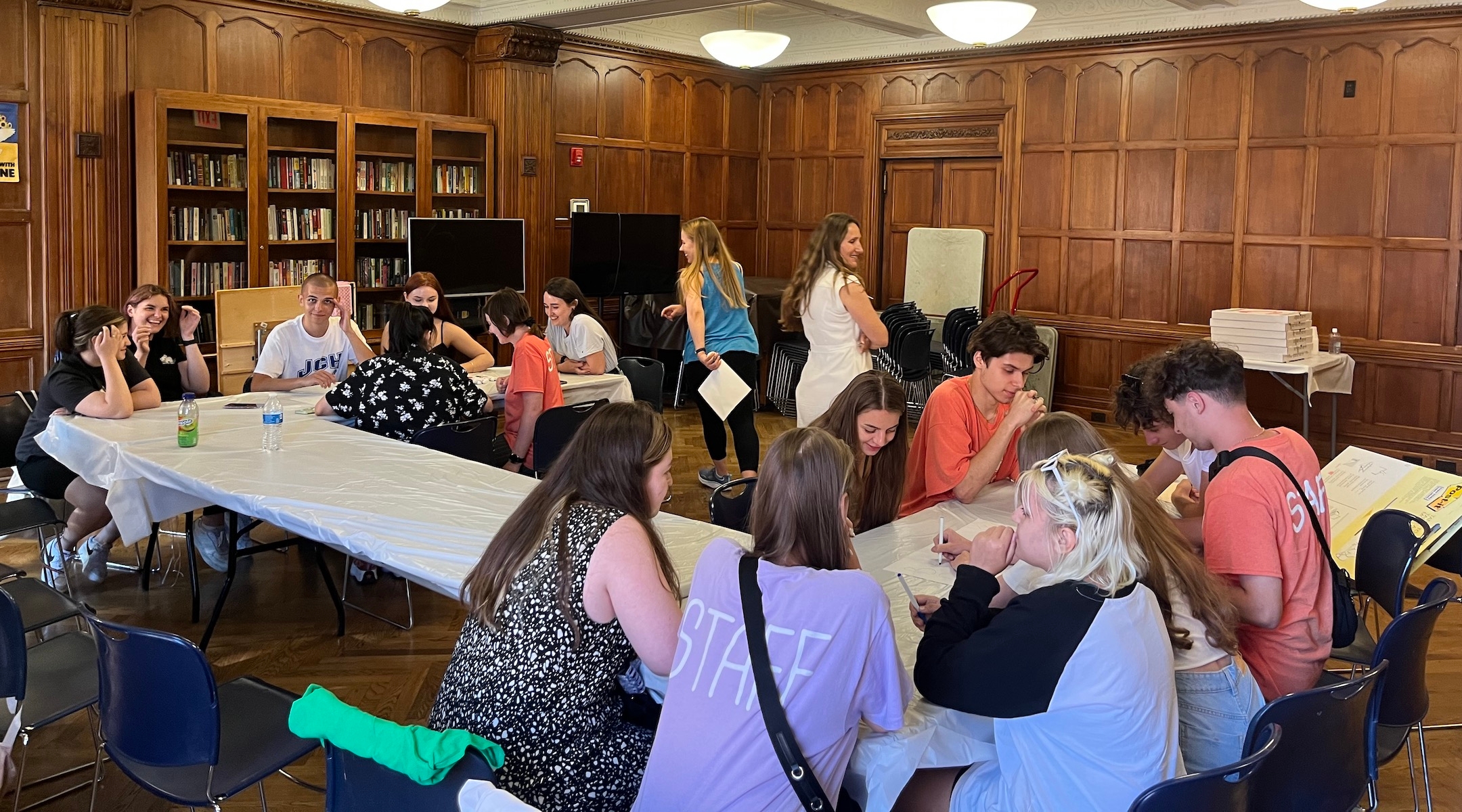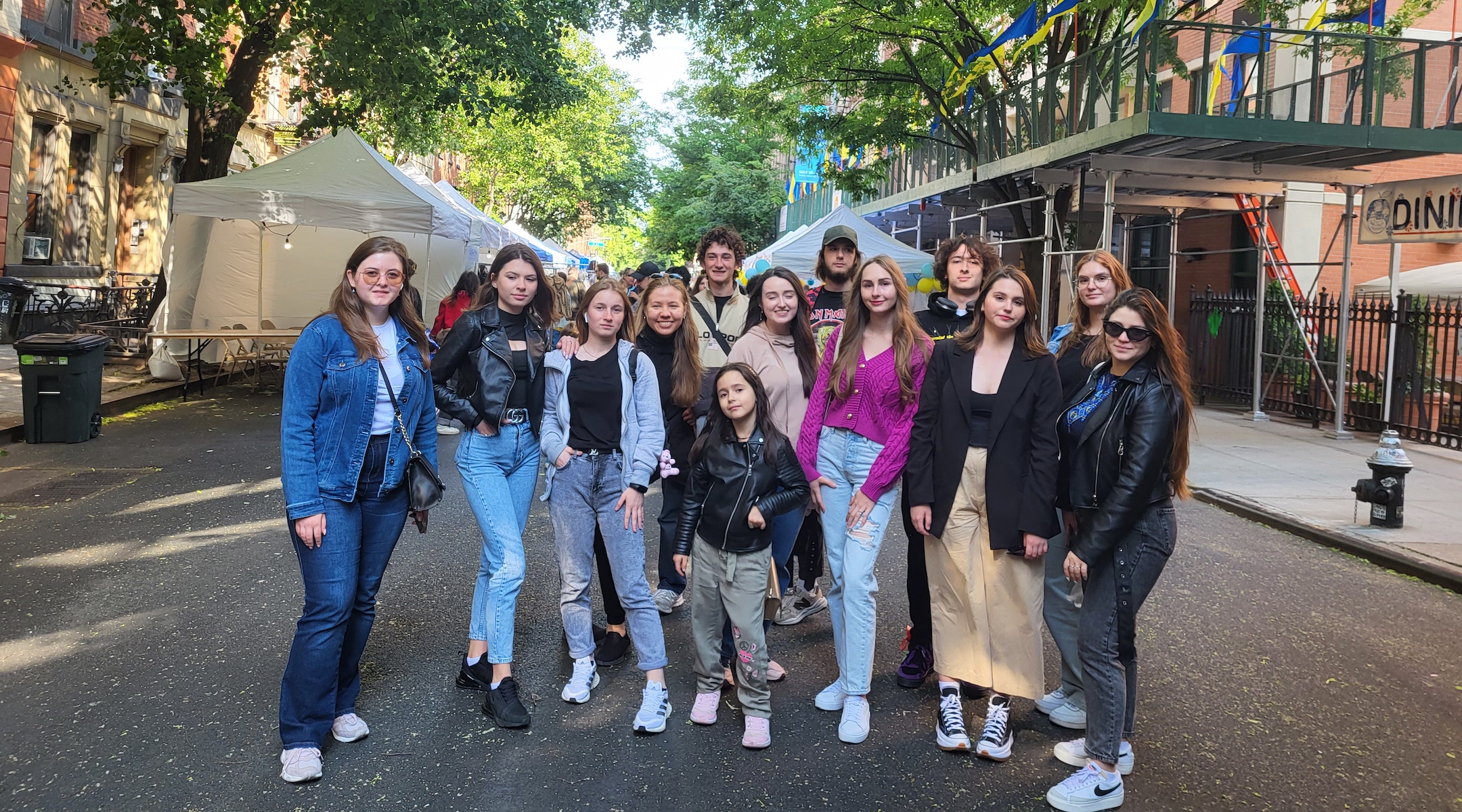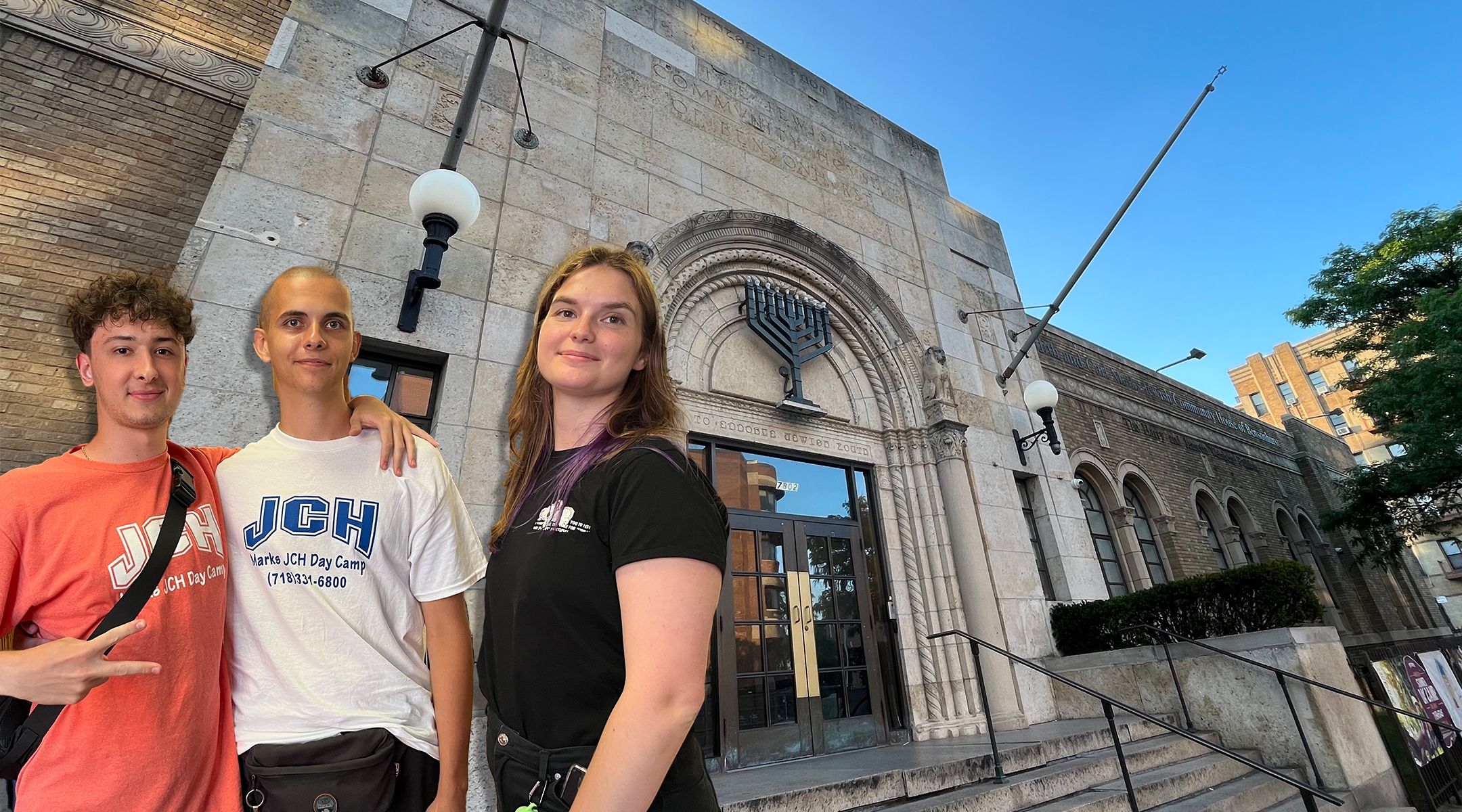(New York Jewish Week) – On a sweltering July afternoon, 15 Ukrainian young adults gathered in a meeting room at the Jewish Community House in Bensonhurst, Brooklyn. They toss a small ball to each other as an ice breaker — a way to indicate who should introduce themselves next.
As the ball flies around the room, each volunteer shares the Ukrainian city or town they are from, how they found the program and what their volunteering assignment is.
All of the participants left a country riven by war, were resettled in Brooklyn by the Edith and Carl Marks Jewish Community House of Bensonhurst and are now giving back as part of the second cohort of a volunteer program entirely made up of Ukrainian refugees run by Repair the World Service Corps.
The relationship between the two organizations is reciprocal: The Ukrainian young adults are learning from Repair the World how to best give their time and labor to nonprofits and social services like the Marks JCH of Bensonhurst, a community center and social services agency that has been helping to resettle them for the last year.
“This was a seamless integration of having an already-present population of young adults who are really interested in giving back to the community that’s helping them in their resettlement efforts by volunteering in different aspects in that community center,” said Michaela Slutsky, the Northeast regional director at Repair the World, who conceived the partnership six months ago. The national Jewish nonprofit mobilizes young Jewish adults for volunteering and community service.
Most of the participants so far are not Jewish — in fact, for those who lived outside Odessa or Kyiv, this is likely the first time they have interacted with Jewish institutions. But for volunteer Margaryta Monastyrska, a 21-year-old from Kyiv who is Jewish, it has been gratifying to see her peers learn about Jewish values.
“Nobody even asked me if I was Jewish or not,” Monastyrska told the New York Jewish Week through a translator. “They just helped me because they knew the situation in Ukraine. They helped me find a place to work and to find a community.”
“It’s really important that [the other Ukrainians] I volunteer with understand that they are not at any organization, but a Jewish organization,” she added. “I want them to understand that Jews are not some close community which helps only other Jews, that the Jewish people help everyone from any part of the world.”

For the first session of the summer, the group introduced themselves and talked about the Jewish concept of tzedakah over pizza at the Jewish Community House of Bensonhurst, July 6, 2023. (Julia Gergely)
Yehor, 19, who also participated in the first cohort of Repair the World’s Ukrainian Services Corps from March to May, said the best part of the program has been “eating pizza,” which they have at the end of every learning session. On a more serious note, he also said he enjoyed “having conversations about volunteering.”
A refugee from Kherson, Yehor came to New York in November with his parents and little brother. After a few months, he and his family — who are not Jewish — got connected with Marks JCH through their refugee resettlement program. Yehor went to the teen services department to ask about applying to colleges, boosting his resume, English classes and a part-time job. He was directed to the newly formed Ukrainian service corps.
It was teenagers like Yehor who helped inspire the partnership between Repair the World and Marks JCH. Since February 2022, when Russia launched its invasion in Ukraine, there has been an increasing number of Ukrainian young adults arriving at Marks JCH looking for jobs and career guidance. They also needed something to do and somewhere to meet other refugees who had been through the same experiences.
Repair the World provides a stipend to members for 10 to 12 weeks. Participants are matched with a volunteering project in the community they live in and meet weekly to learn about community service and Jewish values.
Slutsky has a lifelong connection with Marks JCH: Her great-grandparents volunteered there when they left the Soviet Union some 50 years ago, and the family has been deeply involved ever since. Slutsky herself had worked as the program director of the teen services department at Marks JCH for many years. Although Marks JCH and Repair the World have worked together to organize standalone projects and volunteer days, this is their first long-term partnership.
For the Ukrainian cohort, the Repair the World curriculum has been translated entirely into Ukrainian, and changes have been made to teach about Jewish values for those who may have never interacted with Jews before.
“There’s no way that our Repair staff would be capable of launching this cohort without working with Marks JCH as a true partner,” Slutsky said. “JCH was a perfect fit because they get services here, they find community here, they find friends here. They feel integrated. The goal is when Repair walks away from running the cohort one day, these young adults will still have a place here in this community.”
Yehor’s first volunteering assignment was working in Marks JCH’s social services center, where he helped refugees like himself and others in need find jobs, attend career workshops and English classes, and get help resettling. This summer, he is working as a counselor at the Jewish Community House’s day camp, which enrolls 700 children.
Around 100 of the campers are Ukrainian refugees, and to have counselors who speak their native language, as well as understand their fears and anxieties about being in a new place, has been “a really big deal, it really helps the kids adjust,” said Gelena Blishteyn, the chief operating officer at Marks JCH. “We have a child who spent a long time in a shelter and is afraid of enclosed spaces. To have somebody there who speaks Ukrainian and knows exactly what this child has been through and can adjust the programming is really important.”
Some of the Ukrainian volunteers work in the after-school program, where they are able to help out with the influx of Ukrainian-speaking children, while others work in senior centers and deliver meals to the elderly. Others work in the same social services department that initially helped them.

During the spring, the first cohort of volunteers planned a weekend excursion to the East Village to attend a Ukrainian Festival. (Courtesy Michaela Slutsky/Repair the World)
For the past 30 years, Marks JCH has been resettling Jews from the former Soviet Union and fostering a community of Russian-speaking Jews in Brooklyn. Since the Russian invasion of Ukraine, they have resettled more than 7,000 refugees who have arrived in Brooklyn. And though the organizations works with anyone in New York — including the large Chinese population of Bensonhurst — many of their staff speak Russian or Ukrainian, as many of them are immigrants or first-generation Americans themselves.
For now, the Ukrainian volunteers are bonding with each other and getting to know their new city. At the same time, they are being exposed to community service through a Jewish lens. In a session attended by the New York Jewish Week, they spent time talking about tzedakah and tikkun olam — charitable giving and social action. Yehor said learning about Judaism has been one of his favorite parts of the experience so far.
“The main thing they try to accomplish is just get to know one another, form bonds and to create a community,” Blishteyn said. “Many of them come here completely alone. They don’t know anyone. So the most important part of this project, beyond professional success and financial aid, is to really get to form a community.”
Indeed, half of the first session service corps members applied to be a part of the second session. Yehor met his best friend in New York, Artem, a refugee from Kyiv, through the program — the two said they now see each other five or six times a week. Like other young New Yorkers, they hang out in Prospect Park, travel to Manhattan to see the sights and go to the beach together. Artem met his girlfriend, Diana, through the cohort as well — though they are only 19, they live together in an apartment in Flatbush because their families decided to travel back to Ukraine.
“When I arrived in New York, I had no friends in New York, so they helped me to find new friends, gave me the opportunity to make some money and let me try something new,” Yehor said. “I really love my job.”
The New York Jewish Week brings you the stories behind the headlines, keeping you connected to Jewish life in New York. Help sustain the reporting you trust by donating today.





